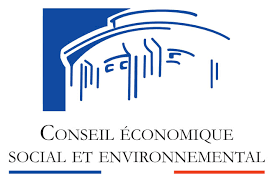The CESE seeks to help older jobseekers return to work in France

The French Economic, Social and Environmental Council (CESE) has just put a new document online detailing the professional situation of seniors in which it highlights solutions to improve their situation in the job market.

Based on the observation that generation contracts have a mixed record for the employment of seniors, the public body notes that they remain vulnerable and suffer from discrimination in the eyes of certain employers, despite an increase in their participation in the job market.
17 recommendations for the employment of seniors
To improve the professional integration of seniors, the EESC lists 17 recommendations divided into three distinct action areas: the fight against stereotypes and discrimination against older people, job retention and support for professional transitions.
Fighting against stereotypes and discrimination when hiring
The first objective is to combat the stereotypes that senior candidates may experience in the recruitment process. The goal is to apply the principle of non-discrimination vis-à-vis seniors. To do this, it will be necessary to organize public information campaigns as well as training and awareness-raising activities in the private and public sectors on issues related to discrimination and stereotypes . The mobilization of recruitment practices can prevent or reduce the risk of discrimination.
Keeping seniors in employment
Keeping seniors active is an interesting option, however, its application remains difficult. Several steps have been proposed by the EESC to help achieve this. The EESC believe it is necessary to start negotiations with the civil service in the second half of a civil servant’s career and to set up a national support system for the negotiation of measures promoting age management.
The integration of active support measures for senior employees should be considered as part of the mobility leave. The EESC offers various options for senior employees such as promoting Cléa certification in the various professional branches, increasing the recognition of qualifications and training and securing career paths.
Prioritizing professional transitions
In order to allow seniors to stay in work, professional transition is a must. With this in mind, the EESC proposes to entrust an experimental project sponsoring senior volunteers’ skills to the Agence France Compétences.
Seniors should also be able to receive professional development advice, while support for returning job seekers over the age of 57 is also proposed. This advice and support package may also include a contract of employment and financial assistance.
It is also necessary for the EESC to help inform older people about the rights and conditions for starting retirement during their professional career. In addition, the EESC will provide generalized information workshops for jobseekers.
Finally, the EESC suggests negotiating end-of-career development agreements at branch and company level by ensuring that pension contributions are maintained on a full-rate basis.

